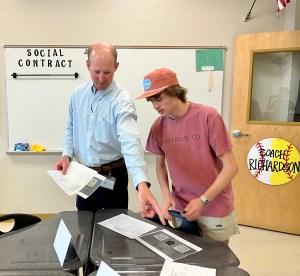High temperatures raise health concerns in Southwest Georgia
Published 8:45 am Tuesday, July 15, 2025

- The National Weather Service issued a heat advisory for today. It's the second straight day with a heat advisory here, but the NWS has been warning of high temperatures for much longer. (National Weather Service graphic)
ALBANY — With temperatures across Southwest Georgia climbing into the upper 90s — and heat indices making it feel even hotter — the Southwest Health District is urging residents to take precautions against heat-related illness.
Extreme heat can be dangerous, especially for young children, older adults, and those with chronic health conditions. Whether you’re working outside, commuting, or just going about your day, it’s important to remember these three steps: Stay Cool, Stay Hydrated, and Stay Informed.
Stay cool
— Wear lightweight, light-colored clothing and stay indoors in air-conditioned spaces.
— Fans alone aren’t enough — take cool showers or baths to lower body temperature.
— Never leave children, adults, or pets in a parked car — even briefly.
— Avoid using your stove or oven, and stick to light meals.
— Limit outdoor activity to early morning or evening, and take frequent breaks if you must be outside.
— Use sunscreen (SPF 15+), sunglasses, and a wide-brimmed hat when outdoors.
Stay hydrated
Trending
— Drink plenty of water throughout the day—don’t wait until you’re thirsty.
— Avoid sugary or alcoholic drinks.
— Replenish lost salts with a sports drink, especially after sweating heavily.
Stay informed
— Check local weather reports and heat advisories.
— Use the buddy system — check on others twice a day during extreme heat.
— Pay special attention to those at higher risk, including infants and young children, adults over 65 years of age, people with chronic illness or on certain medications, and those who are overweight or physically active outdoors.
Protect your pets
— Ensure pets have shade with airflow and plenty of cool water—add ice when possible.
— Avoid doghouses — they trap heat and can be dangerous.
For more tips and resources, visit www.swhealthdistrict.org or follow the Southwest Health District on social media.






